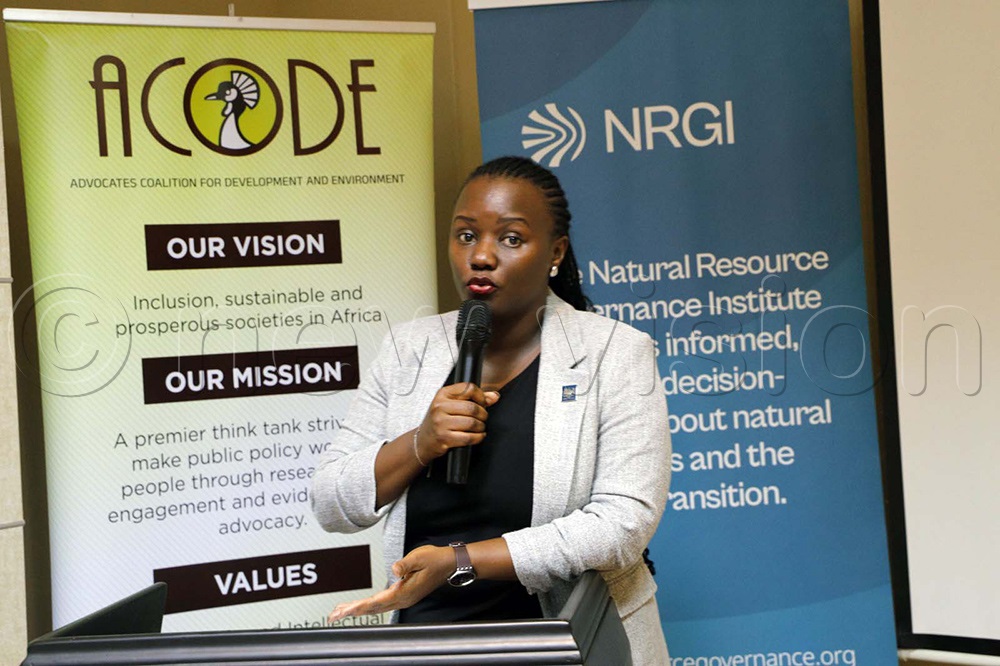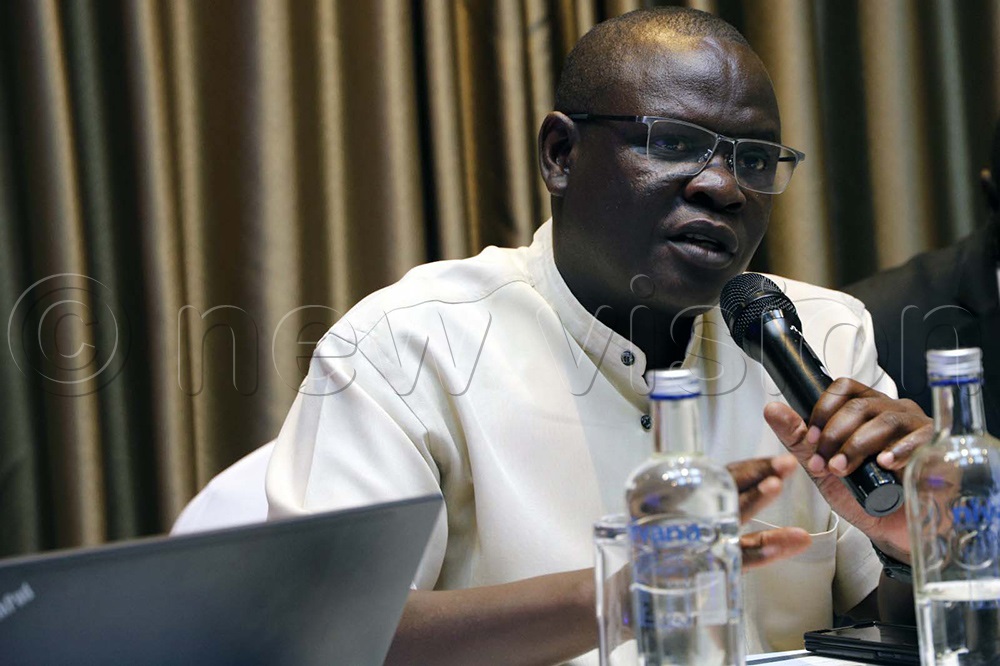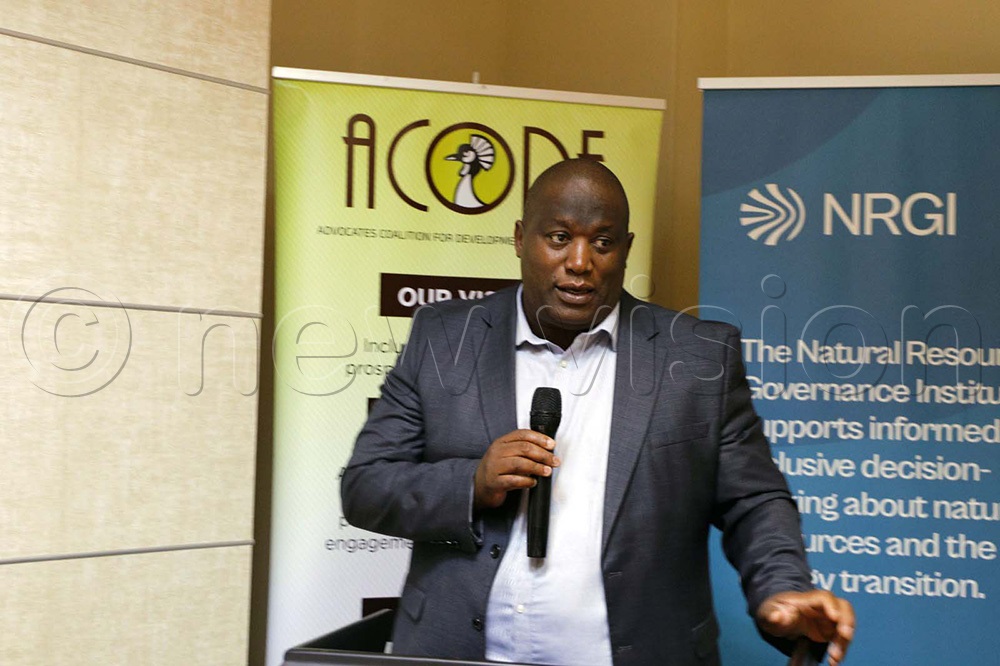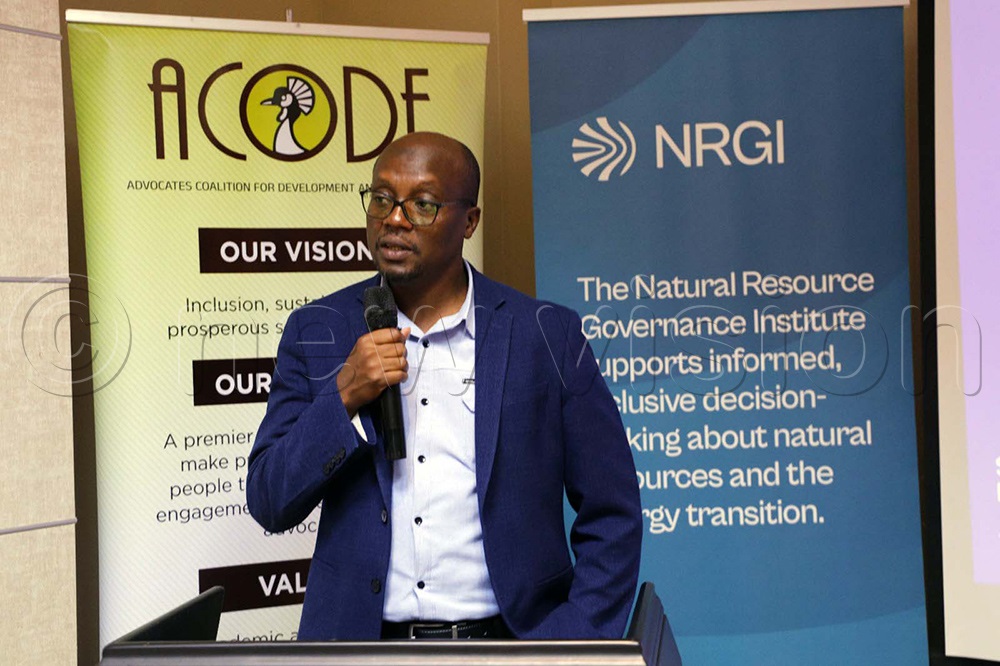Uganda drafts mining rules to boost local content, community gains
The Ministry of Energy and Mineral Development says the planned regulations will focus on national content and community development, alongside other measures to improve oversight and value addition in the sector.
Government, civil society officials and participants pose for a photo after the stakeholder engagement on regulations for the Mining and Minerals Act 2022 at the Sheraton Hotel Kampala. (Photo by John Odyek)
___________________
Uganda is drafting new regulations to strengthen national participation and community benefits in its mining industry as the government moves to operationalise the Mining and Minerals Act, 2022.
The Ministry of Energy and Mineral Development says the planned regulations will focus on national content and community development, alongside other measures to improve oversight and value addition in the sector.
Loyola Rwabose Karobwa, a senior legal officer at the ministry, said the Act already provides wide-ranging requirements on employing Ugandans, procuring local goods and services, technology transfer, and training. “The absence of regulations does not hinder the implementation of these provisions. However, the regulations will help standardise practices and ensure alignment with global best practice,” she said.
Loyola Rwabose Karobwa, the senior legal officer at the Ministry of Energy and Mineral Development addressing participants attending the stakeholder engagement on regulations for the Mining and Minerals Act 2022 at the Sheraton Hotel Kampala. (Photo by John Odyek)
Karobwa was presenting an overview of Uganda’s mining and mineral regulations at a stakeholder engagement on the Mining and Minerals Act, 2022, held at the Sheraton Kampala Hotel.
The meeting was organised by the Natural Resource Governance Institute (NRGI), the Advocates Coalition for Development and Environment (ACODE), and the ministry. The August 28, 2025, session brought together government officials, civil society, media, and industry players to review draft rules intended to give full effect to the Act.
Strengthening local participation
The national content regulations are expected to compel mining companies to prioritise Ugandan workers in recruitment and promotion, develop training plans, and source goods and services locally where available. They will also guide partnerships with East African and African Union suppliers while setting standards for research and innovation.
Equally significant will be the community development regulations, which will outline models for how companies can support host communities through infrastructure, social services, and livelihood projects.
Karobwa said these will provide a clear framework to ensure mining activities translate into tangible local benefits.
Other regulations under preparation include those on inspection and monitoring, mineral beneficiation, decommissioning funds, and mineral markets.
Licensing and small-scale miners
Vincent Kedi, the assistant commissioner for licensing and administration from the Department of Geological Survey and Mines, explained that mining investors begin with a prospecting licence, granted for one year, before moving to exploration, feasibility studies, and eventually a mining licence.

Vincent Kedi, the assistant commissioner licensisng and administration from the department of geological survey and mines addressing participants attending the stakeholder engagement on regulations for the Mining and Minerals Act 2022 at the Sheraton Hotel Kampala. (Photo by John Odyek)
Kedi noted that artisanal and small-scale mining (ASM) licences are designed to manage gold rush areas by zoning them for community-based mining. However, delays in issuing licences persist because many small-scale miners struggle to conduct the mandatory environmental impact assessments (EIA).
“The cost of EIAs is a major obstacle. We are in discussions with NEMA to explore ways of easing this process for artisanal miners,” Kedi said. He added that the ministry is working to translate mining laws and regulations into local languages to make them more accessible.
Stakeholder inclusion
Dr Paul Bagabo, a consultant with NRGI, emphasised that consultations are critical for ensuring the regulations serve citizens’ interests. “Discussing draft regulations enhances stakeholder inclusion in the final documents, with the aim of maximising benefits from the mining sector,” Bagabo said.

Dr Paul Bagabo, a consultant with the Natural Resource Governance Institute (NRGI) addressing participants attending the stakeholder engagement on regulations for the Mining and Minerals Act 2022 at the Sheraton Hotel Kampala. (Photo by John Odyek)
Civil society representatives echoed the importance of dialogue. Bashir Twesigye, chairperson of the Civil Society Coalition on Oil (CSCO), said the process provides clarity on the regulatory direction. “Even with limited funding, we remain committed to supporting accountability in mining and other extractive sectors,” Twesigye said.
Existing regulations
Uganda has already passed several instruments to operationalise the Act. These include the Mining and Minerals (Licensing) Regulations, 2023, amended in 2024; the ICGLR Regional Certification Mechanism for tin, tantalum, tungsten, and gold; and export rules for refined gold, processed vermiculite, sponge iron, and iron ore. Regulations for artisanal mining were gazetted in 2025.

Bashir Twesigye, chairperson of the Civil Society Coalition on Oil (CSCO) addressing participants attending the stakeholder engagement on regulations for the Mining and Minerals Act 2022 at the Sheraton Hotel Kampala. Photo by John Odyek
Industry challenges
Despite this progress, stakeholders say Uganda’s mining sector still faces structural hurdles. A draft position paper prepared by civil society highlights weaknesses such as inadequate value addition, poor transport and storage infrastructure, rudimentary mining methods, informality, and limited institutional capacity for exploration and monitoring.
Don Binyina, the executive director of the African Centre for Energy and Mining Policy (ACEMP), presented the draft paper, and the final document will soon be released.
If effectively implemented, the regulations may help Uganda shift from raw mineral exports towards value addition, job creation, and stronger community ties, which are key ingredients for turning its mineral resources into long-term national wealth.